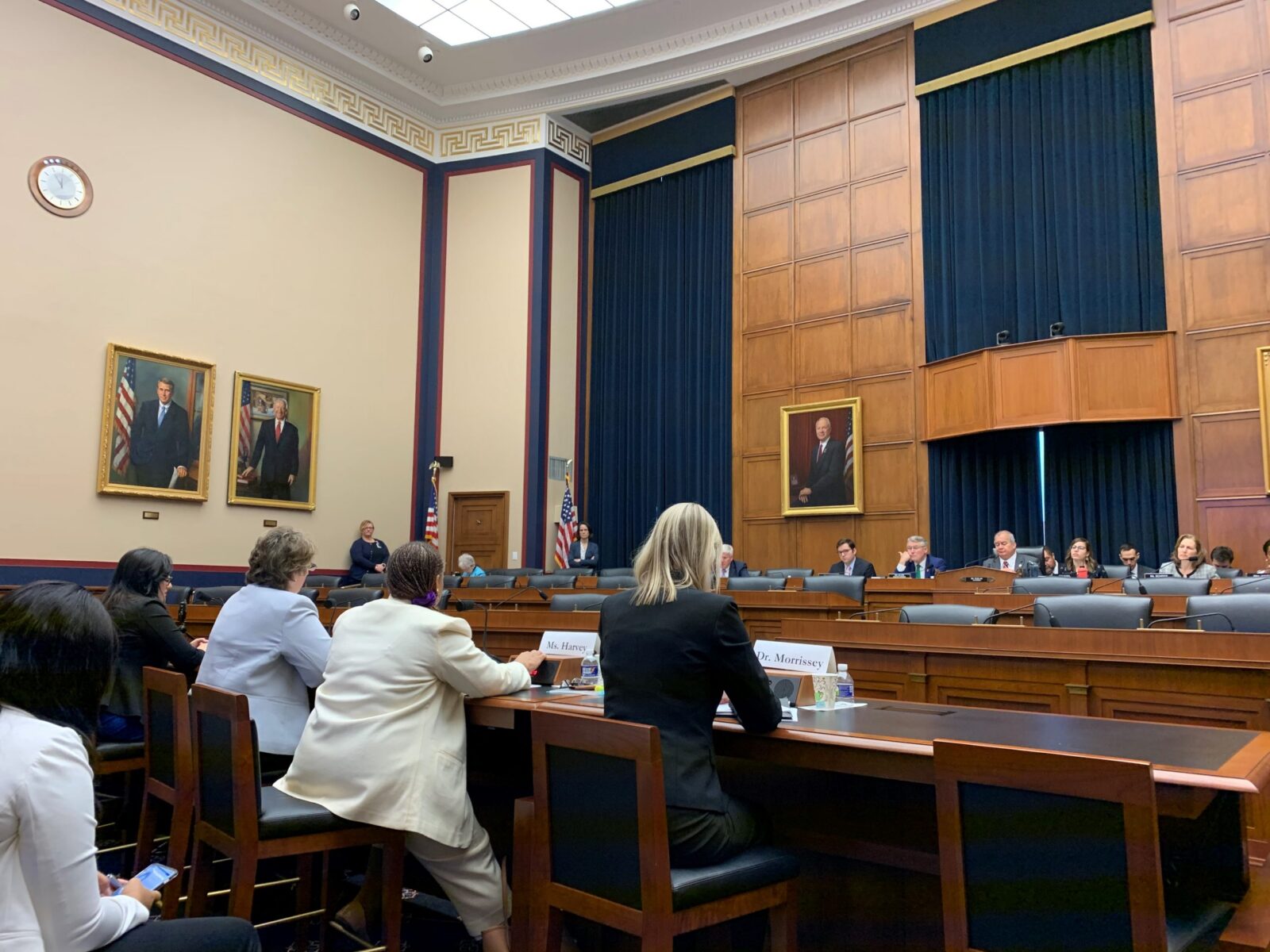House Education and Labor Committee Holds Bipartisan Hearing on Child Care and Early Learning

This week, the U.S. House Committee on Education and Labor Subcommittee on Early Childhood, Elementary and Secondary Education held a hearing on the need for high-quality, affordable child care entitled “Solving America’s Child Care Crisis: Supporting Parents, Children, and the Economy”. Throughout the bipartisan congressional hearing, Members of Congress heard from scholars, practitioners, and a parent about the tremendous challenges of accessing quality, affordable early learning and care for children and families across the country. Members agreed that early learning and care is critical for a child’s development and praised the effectiveness of programs that make affordable, high-quality care accessible to working families.
In addition to discussing the cost of care, the witnesses and members agreed child care providers are often forgotten when funding decisions are made, and more must be done to ensure they receive compensation based on their educational attainment and experience and can access professional development opportunities.
Witnesses:
Taryn Morrissey, Ph.D.
Dean’s Scholar Associate Professor
School of Public Affairs, American University
Washington, D.C.
Nancy Harvey
Child Care Provider
Lil Nancy’s Primary Schoolhouse
Oakland, CA
Linda Smith
Director, Early Childhood Initiative
Bipartisan Policy Center
Washington, D.C.
Angélica María González, J.D.
Parent / Law Clerk
MomsRising / Lane Powell
Seattle, WA
Here are some of the top moments from the hearing:
Subcommittee Chairman Sablan (D-N. Mariana Islands), calling child care “one of the best investments we can do for our children, our future, and our economy,” pointed directly to research and data that shows the impact early learning and care has on children. “It is now well established that the first five years of life are critical for cognitive intellectual development. Particularly the development of language. More than that, the first five years are when social and emotional skills develop.”
Echoing this sentiment, Congresswoman Jahana Hayes (D-CT) recalled her years as a high school teacher and noticing the difference between students who had received high-quality early learning and care and those who had not, “whether it was their reading skills, their language skills, their social skills, you could always tell which children had access to early childhood education.”
Ranking Member Allen (R-GA) spoke at length about the economic impact of lacking affordable child care, saying, “not only do [federal early learning and care] programs provide stability for children, but they also support parents who want to continue pursuing an education or career. Lack of affordable child care can result in employee absences and turn over, which in turn can pose a significant cost to employers and impacts overall economic development.”
In his closing, Congressman Allen highlighted the need for bipartisan support, “the bottom line is, we all agree that supporting children’s development in the early years is critical, as it builds a strong foundation for future success. And we agree that high-quality child care is a critical support for working families.”
Additionally, Congressman Fred Keller (R-PA) and Congressman Glenn Grothman (R-WI) used their time to discuss ways to engage the business community in the early learning and care discussion and made a point to note the need to bring down costs for working families.
Members and witnesses also highlighted the work being done to support parental choice in child care and innovative reforms being made by states with Preschool Development Grants (PDG) resources.
“I think this is one of the most important investments that congress has made recently in early childhood. It has really spurred the states on to look objectively at what is going on in their states. All of the reports to date suggest states have a much better understanding of the need in their states and communities,” Linda Smith said. “Preschool Development Grants have done amazing things to help states look at their systems and bring these funding streams together in a meaningful way.”
Subscribe to FFYF First Look
Every morning, FFYF reports on the latest child care & early learning news from across the country. Subscribe and take 5 minutes to know what's happening in early childhood education.



